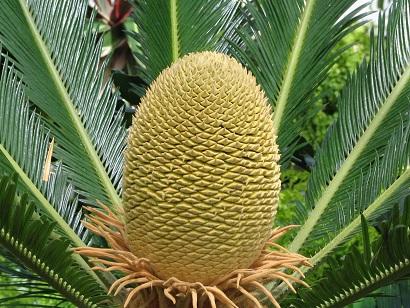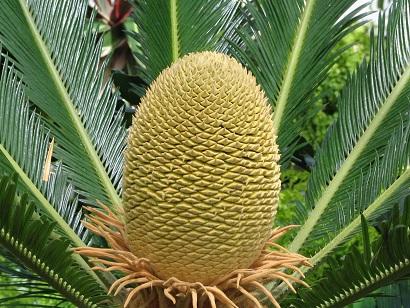
Credit: Glen Fleishman (Creative Commons licence)
A joint project between conservationists and electronics experts at the University of Kent has developed miniature radio devices in tamper-proof casings to protect rare species from poachers.
The University of Kent is now working in association with the South African National Biodiversity Institute, where this technology has now been proposed as part of conservation planning.
The illegal wildlife trade is fourth only to narcotics, human trafficking and counterfeiting, with an estimated value around $20 billion per year and the United Nations recognising environmental crime as requiring greater response by governments.
The project team have developed and tested Radio Frequency Identification (RFID) tags on endangered cycads, a group of plants that predate the Jurassic era. Nearly 40% are threatened with extinction and are vulnerable to theft due to their rarity, durability and looks. Some have been so heavily poached that populations have crashed from 10,000 to less than 400 individuals.
The tag is placed within a tamper-proof case that can't be moved without destroying the transponder chip within the tag. The team proposed that the tags could be used along with satellite or cellular networks to relay immediate alerts to ranger stations as soon as a plant goes missing, with drones deployed for observation. Secondary RFID tags could also be embedded into plants to help identify any that are stolen and later recovered.
The project was led by Professor John Batchelor, Professor of Antenna Technology in the School of Electronics and Digital Arts, and Dr David Roberts, Reader in Biodiversity Conservation in the Durrell Institute of Conservation and Ecology in the School of Anthropology and Conservation.
###
https://kar.kent.ac.uk/58968/1/RFID%20Cycad%20Conservation.pdf
For further information or interview requests contact Sandy Fleming at the University of Kent Press Office.
Tel: 01227 823581/01634 888879
Email: [email protected]
News releases can also be found at http://www.kent.ac.uk/news
University of Kent on Twitter: http://twitter.com/UniKent
Note to editors
RFIDs were developed to track assets either by scanning barcode labels or using tags but have been applied in other areas, one of which is security. In tests, the RFID tag on the plant could be detected up to 10 metres away, and stopped working when it was moved.
Established in 1965, the University of Kent – the UK's European university – now has almost 20,000 students across campuses or study centres at Canterbury, Medway, Tonbridge, Brussels, Paris, Athens and Rome.
It has been ranked: 23rd in the Guardian University Guide 2017; 23rd in the Times and Sunday Times University Guide 2017; and 23rd in the Complete University Guide 2017.
In the Times Higher Education (THE) World University Rankings 2015-16, Kent is in the top 10% of the world's leading universities for international outlook and 66th in its table of the most international universities in the world. The THE also ranked the University as 20th in its 'Table of Tables' 2016.
Kent is ranked 17th in the UK for research intensity (REF 2014). It has world-leading research in all subjects and 97% of its research is deemed by the REF to be of international quality.
In the National Student Survey 2016, Kent achieved the fourth highest score for overall student satisfaction, out of all publicly funded, multi-faculty universities.
Along with the universities of East Anglia and Essex, Kent is a member of the Eastern Arc Research Consortium.
The University is worth £0.7 billion to the economy of the south east and supports more than 7,800 jobs in the region. Student off-campus spend contributes £293.3m and 2,532 full-time-equivalent jobs to those totals.
In 2014, Kent received its second Queen's Anniversary Prize for Higher and Further Education.
Media Contact
Sandy Fleming
[email protected]
44-012-278-23581
@UniKent
http://www.kent.ac.uk
############
Story Source: Materials provided by Scienmag





